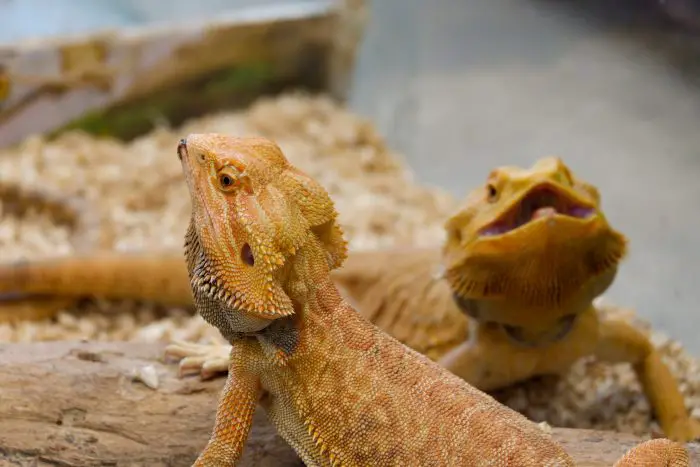
Bearded dragons are popular pets because of their docile nature and easy-to-care-for nature. However, like all animals, they are prone to various diseases, including Yellow Fungus Bearded Dragon. Yellow fungus is a contagious disease that affects reptiles, including bearded dragons. It can be difficult to diagnose and treat, so it’s important to know the symptoms and seek veterinary attention immediately if your bearded dragon shows any signs of the disease.
In this article, we’ll discuss the causes, symptoms, and treatment of yellow fungus in bearded dragons.
Causes of Yellow Fungus Bearded Dragon
Yellow fungus is caused by the fungus Chrysosporium. This fungus is found in soil and can infect bearded dragons through wounds or other injuries. The fungus can also be spread from one bearded dragon to another through direct contact or contaminated objects, such as food dishes or water bowls.
Symptoms of Yellow Fungus Bearded Dragon
The yellow fungus can be difficult to diagnose in the early stages. However, there are some symptoms that you can look out for, including:
- Yellow or white patches on the skin or scales
- Raised bumps or lesions on the skin
- Loss of appetite
- Lethargy
- Weight loss
- Difficulty moving or walking
- Discharge from the eyes, nose, or mouth
- Swollen limbs
If you notice any of these symptoms in your bearded dragon, it’s important to seek veterinary attention immediately. The yellow fungus can progress quickly and can be fatal if left untreated.
Treatment of Yellow Fungus Bearded Dragon
The treatment of yellow fungus in bearded dragons can be challenging. Treatment usually involves a combination of antifungal medication and supportive care. Your veterinarian may prescribe an antifungal medication, such as itraconazole or voriconazole, to help fight the infection. Additionally, your bearded dragon may require fluids, antibiotics, and pain medication.
It’s important to note that the treatment of yellow fungus can take several weeks or even months. During this time, your bearded dragon may require regular veterinary visits and ongoing care.
 Yellow Fungus Bearded Dragon
Yellow Fungus Bearded Dragon
Prevention of Yellow Fungus Bearded Dragon
Prevention is always better than cure. To prevent yellow fungus in bearded dragons, it’s important to practice good hygiene and provide a clean and healthy environment for your pet. Here are some tips to prevent yellow fungus:
- Clean and disinfect your bearded dragon’s enclosure regularly
- Provide fresh and clean water daily
- Avoid overcrowding your bearded dragons
- Quarantine any new bearded dragons before introducing them to your existing pets
- Seek veterinary attention immediately if you notice any signs of illness in your bearded dragon
Conclusion
Yellow fungus is a serious disease that can affect bearded dragons. As a pet owner, it’s important to know the symptoms and seek veterinary attention immediately if you notice any signs of the disease. With prompt diagnosis and appropriate treatment,
Other bearded dragon health topics:
FAQs
Yes, with prompt veterinary attention and appropriate treatment, the yellow fungus can be cured. However, the treatment can take several weeks or months.
Yes, the yellow fungus is highly contagious and can spread from one bearded dragon to another through direct contact or contaminated objects.
No, yellow fungus requires veterinary attention and appropriate treatment with antifungal medication and supportive care.
Yes, the yellow fungus can be fatal if left untreated or if the infection becomes severe.
Yellow fungus is typically diagnosed through a combination of physical examination, skin scraping, and fungal culture. Your veterinarian may also recommend blood tests or imaging to assess the extent of the infection.
